#Huldrych Zwingli
Text
Our confidence in Christ does not make us lazy, negligent, or careless, but on the contrary it awakens us, urges us on, and makes us active in living righteous lives and doing good. There is no self-confidence to compare with this
Huldrych Zwingli
45 notes
·
View notes
Quote
Christ, having sacrificed himself once, is to eternity a certain and valid sacrifice for the sins of all faithful.
Huldrych Zwingli
22 notes
·
View notes
Text
Switzerland, Day 1 - Zurich
Switzerland, day 1, Zurich. Though Zug would be my base in Switzerland. A small town 30 minutes train ride from Zurich in the canton of Zug. Not really a base; my friend has been living there for over 15 years, Kim. Having no plans whatsoever for Switzerland (nothing new), Kim had kindly invited me to stay with her. Heading back to Europe it felt like going home, going back to familiarity. Having…

View On WordPress
#Carolingian#Carolingian dynasty#Charlemagne#Fraumünster#Funicular#Grossmunster#Huldrych Zwingli#King of the Franks#King of the Lombards#limmat#Pollyterrasse#Polybahn#Predigerkirche#Reformation of Switzerland#river Limmat#St. Peter Church#St. Peterskirche#Swiss-German#Switzerland#UBS Polybahn#Zurich
0 notes
Text
Augsburg Confession - World History Encyclopedia
https://www.worldhistory.org/Augsburg_Confession/
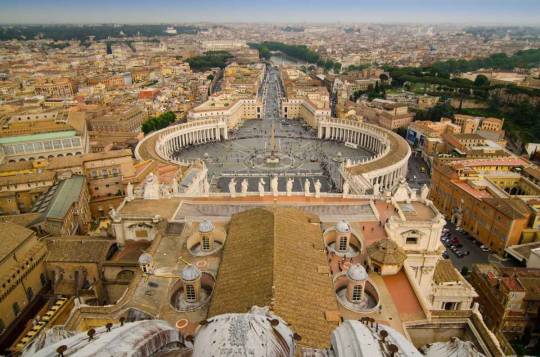
View On WordPress
#1517#1521#1555#Anabaptist#April 1530#Augsburg#Augsburg Confession#Catholic Church#Charles V#Diet of Augsburg#Diet of Worms#Elector#Frederick III#Germany#Huldrych Zwingli#Imperial Diet#June 1530#Kappel Wars#Lutheran Church#Martin Luther#Nicene Creed#Ninty-five Theses#Peace of Augsburg#Philip Melanchthon#Protestant Reformation#Roman Catholic Church#Saxony#Schmalkaldic League#Torgau Articles
0 notes
Text
1620s tumblr simulator

🍷 librolibra Follow
Truly nothing worse than when another volume of Don Quixote gets translated and I have to deal with a flood of dumb Englishmen who don’t get any of the cultural context. This isn’t one of your little Shakespeare plays, it’s a profound meditation on Spanish values!
#libra speaks #miguel cervantes #don quixote #don quixote de la mancha #sancho panza #dulcinea del toboso
( 201 notes )

👨🏻❤️💋👨🏻 windmillboysfan Follow
if sanxote doesn’t become canon in this next volume i’m bringing a plague rat on my next trip to the continent
( 9,334 notes )

⚓️ devil-of-the-high-seas Follow

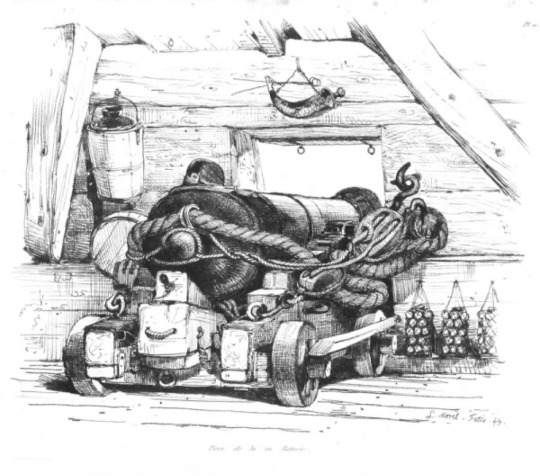
spent all me booty on some new toys
🦊 huanhuan Follow
i think i hauve the bubonic plague
( 763 notes )

🦆 yuanyangsword Follow
hey guys i think i’ve figured out why my sect leader insisted on rescuing this idiot scholar from the embroidered uniform guard
#it’s not THE stupidest rescue we’ve done but it’s up there #anyways i’ll investigate more and update when i’m sure
( 7 notes )

😈 heretics-bracket Follow
Vote to settle the Protestant question once and for all!
( 1,092 notes )

⚔️ the-wulinmengzhu Follow
pussy from a boy who failed the imperial exams four times and got last place on the fifth
⚔️ the-wulinmengzhu Follow
oh this is absolutely the wrong account
( 70,884 notes )

🦞 lobsterlord Follow
gave one of these mayflower guys some of my popcorn and he started giving thanks to god, instead of me, the one who made the popcorn and gave it to him.
( 71 notes )

🔘 egghead-official-deactivated16220217
eunuch wei just summoned me for a private conference. hopefully this is the promotion i’ve been working for!
( 24 notes )

⚒️ craftsmanfrombeijing Follow
Just added to my shop!!

🐉 tianqi-huangdi Follow
Beautiful work!!
🔘 egghead-official-deactivated16220217
for anyone who doesn't know, the emperor runs both accounts lol. one wonders how the mandate of heaven could rest on someone who prefers woodworking to governing. but of course that’s not for me to speculate
( 1,759 notes )

👨🏻❤️💋👨🏻 windmillboysfan Follow
apparently the notorious catholic l*brolibra is claiming to be a spanish noblewoman now? the TRUTH is she’s an eelmonger’s daughter and the poxiest wench in london, and i have proof
( 3,001 notes )
3K notes
·
View notes
Text
Ultimately, Protestantism's biggest failure is its blindness to history.
It presents a view of Christian history in which nobody had the truth, until it was discovered by Jean Calvin, by John Knox, by Huldrych Zwingli.
In denying the faith that the catholic, orthodox church had professed before the reformation, it denies that the Holy Spirit guides his church.
Did our Lord say 'I am with you evermore', or did he say 'I am not with you until 1517'?
As Newman said, 'To be deep in history is to cease to be Protestant'.
Return to the faith of your ancestors!
#anglican#anglocatholic#catholic#catholicism#orthodox#church of england#eastern orthodoxy#orthodoxy#Christian#Christianity
24 notes
·
View notes
Photo
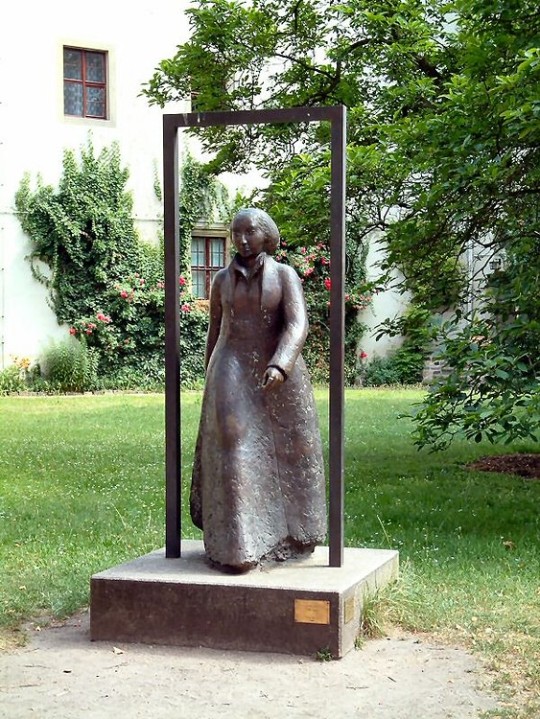
Ten Women of the Protestant Reformation
Women played a vital role in the Protestant Reformation (1517-1648) not only by supporting the major reformers as wives but also through their own literary and political influence. Their contributions were largely marginalized in the past, but modern-day scholarship has highlighted women's roles and established their importance in spreading the reformed vision of Christianity.
Prior to the Reformation, the lives of women were ordered by the Catholic Church, the patriarchal nobility, and their husbands or sons. Women in the Middle Ages held jobs and some even assumed control of the family business after their husbands' death, but their opportunities were still limited, with rare exceptions, to becoming a wife and mother or a nun. After the Reformation began, women found new freedoms – as well as uncertain futures – as monasteries and nunneries were closed, eliminating the option of monastic life, while also allowing women who had been forced to become nuns to now choose their own path.
The Reformation affected women's lives throughout Europe and beyond and, as it was not a cohesive movement, different Protestant sects regarded women in different ways. The followers of Martin Luther (l. 1483-1546) believed that a woman's place was in the home, caring for the children, and those who supported the views of Huldrych Zwingli (l. 1484-1531) felt likewise, while the Anabaptists, who had emerged as their own sect from Zwingli's reforms, elevated women's status to positions of authority as ministers and prophets.
Even within more restrictive Protestant sects, however, women still found they had more of a voice and greater opportunities than before. Luther's wife, Katharina von Bora, was a former nun who married, raised children, brewed her own beer, and ran a farm, while Katharina Schutz, wife of reformer Michael Zell (d. 1548), became far more famous than her husband for her written works. The Protestant Reformation encouraged literacy because, no matter the sect, the new teaching emphasized the importance of reading the Bible for oneself, and so girls were now allowed an education whereas, previously, educating women was considered a waste of time.
Ten Women of the Reformation
The ten women on this list are only a very small sampling of the many who contributed to the Reformation and are mainly drawn from the Lutheran and Reformed sects as their lives are among the best documented:
Katharina von Bora (l. 1499-1552)
Argula von Grumbach (l. 1490 to c. 1564)
Anna Reinhart (l. c. 1484-1538)
Katharina Schutz (l. 1497-1562)
Marguerite de Navarre (l. 1492-1549)
Marie Dentiere (l. c. 1495-1561)
Katharina von Zimmern (l. 1478-1547)
Jeanne d'Albret (Joan III of Navarre, l. 1528-1572)
Anna Adischwyler (l. c. 1504-1564)
Olympia Fulvia Morata (l. 1526-1555)
These women did not suffer as greatly as many others who took a stand for their religious convictions but often endured hardships for their faith, refusing to compromise, even when doing so would have made their lives easier.
Continue reading...
16 notes
·
View notes
Text
17 notes
·
View notes
Text
While looking for information on gender demographics in the aftermath of the Thirty Years' War, I found a perfectly inoffensive article with the most amazing comments.
The Thirty Years War, like many others, was actually a gender war. The Protestants were and are patriarchal while the Catholics are matriarchal. This has been going on for thousands of years with the Satan versus Luciferian battle for control of our planet. Find out the truth in my book, Secrets of the Pink Kush, where the lies embedded within history, religion and biology are revealed. The tetraploid humans are the ones ultimately responsible for these gender wars as the Old World Order battles the New World Order.
Catholics are matriarchal, who knew?
And separately:
It appears that this use of Hebrew religion to encourage genocide and the killing of innocents, has it's beginnings in the overthrow of Black rule in Europe and the substitution of the Albino created "Protest" religions (Protestantism) in Europe.
In the 1500s Martin Luther and other Albinos had rebelled against the Black Catholic Church, then under the protection of the "Black Holy Roman Empire" headquartered in Germany. The Reformation as the Albinos called it: specifically referred to as the Protestant Reformation, was a schism in Western Christianity initiated by Martin Luther and continued by John Calvin, Huldrych Zwingli, and other early Protestant Reformers in 16th-century Europe.
It is usually considered to have started with the publication of the Ninety-five Theses by Luther in 1517 and lasted until the end of the "Thirty Years" War with the Peace of Westphalia in 1648.
It was this war, where all the Albinos across Europe, ganged-up on the Black Holy Roman Empire, which killed-off millions of Black Europeans, and resulted in most of the survivors being shipped to the Americas as slaves or Indentures. This caused the fall of Black rule in Europe, and the usurping and rewriting of Black religion.
I have not heard either of those before and they are both absolutely fucking amazing. (And now I'm wondering if the Black Catholic Church was matriarchal...)
#history#“history”#race#gender#conspiracy theories#racial slurs cw#I think? Is “albino” a racial slur in this context? Probably!
8 notes
·
View notes
Text
1535 -Thomas More
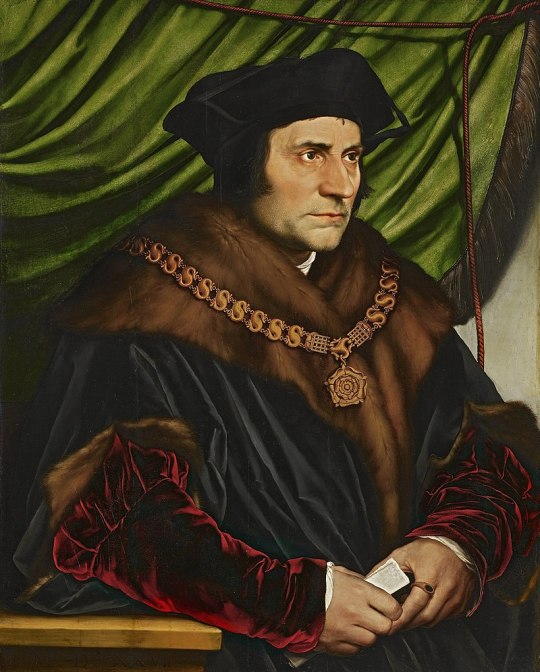
Sir Thomas More (7 February 1478 – 6 July 1535), venerated in the Catholic Church as Saint Thomas More,[7][8] was an English lawyer, judge,[9] social philosopher, author, statesman, and noted Renaissance humanist. He also served Henry VIII as Lord High Chancellor of England from October 1529 to May 1532.[10] He wrote Utopia, published in 1516,[11] which describes the political system of an imaginary island state.
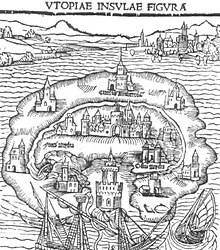
More opposed the Protestant Reformation, directing polemics against the theology of Martin Luther, Huldrych Zwingli, John Calvin and William Tyndale. More also opposed Henry VIII's separation from the Catholic Church, refusing to acknowledge Henry as supreme head of the Church of England and the annulment of his marriage to Catherine of Aragon. After refusing to take the Oath of Supremacy, he was convicted of treason and executed. On his execution, he was reported to have said: "I die the King's good servant, and God's first".
#Jul.6.1535#date of death#Thomas More#English lawyer and politician#Chancellor of the Duchy of Lancaster#Utopia#history today
2 notes
·
View notes
Note
i can agree that he has a kinda goofy haircut but wdym switzerland has a fake name? Basch is a germanic nickname for Sebastian and Zwingli comes from the leader of the Swiss Protestant Reformation, Huldrych Zwingli lol
I cannot emphasize enough how a severe lack of sleep combined with ADHD stimulants meant I was vaguely delirious and 100% talking out of my ass. have mercy. have some grace.
4 notes
·
View notes
Quote
I beseech Christ for this one thing only, that He will enable me to endure all things courageously, and that He break me as a potter’s vessel or make me strong, as it pleases Him.
Huldrych Zwingli
19 notes
·
View notes
Text

SLAYED NECROS -- IN MEMORIAM
PIC INFO: Spotlight on the late, great Eric Martin Ain (1967-2017), a.k.a., "Slayed Necros" on "deadly bassdose" duties, from his early performing/recording days with Swiss extreme metal band HELLHAMMER (soon to be renamed CELTIC FROST), c. 1984. 📸: ❓
MARTIN ERIC: "We created music to transcend our anger, the frustration, and the suffering, otherwise we could have become terrorists, after all. I mean, CELTIC FROST existed not least at a time when the Red Army Faction [the Baader-Meinhof terrorist group] was still active. And as a young individual, one indeed could have easily found connections within the radical left-wing camp, especially in Zurich, where the youth movement was very involved, politically.
At the time in question, adolescent individuals were seen as enemy number one in the city that was once home to the religious reformer Huldrych Zwingli. Any person who decided to grow their hair a bit longer would invariably be taken to the police station to be investigated."
Sources: https://rattle.hu/index.php/2018/04/hellhammer-celtic-frost-apocalyptic-raids-ep-morbid-tales-ep-1984 & www.pinterest.com/pin/black-metal--688910074227194322.
#HELLHAMMER#HELLHAMMER band#Martin Eric Ain#Martin Ain#Bassplayer#FirstWaveBlackMetal#BlackMetal#80s#Bass#ExtremeMetal#ExtremeMusic#Bass guitar#Bassguitarist#80sthrash#Black/DeathMetal#Black/Death Metal#Bassist#80smetal#Extreme Metal#Deadly Bassdose#Slayed Necros#1980s#Photography#DeathMetal#Death Metal#Martin Erich Stricker#Extreme Music
2 notes
·
View notes
Text
The Protestant Reformation
The Protestant Reformation challenged many different aspects of life that were already comfortably established. The Reformation challenged the heart of society, the Church. This was a turning point in sixteenth-century Europe where pre-established notions surrounding economic, political and cultural ideas that affected society were questioned instead of blindly followed. Once again in the life-cycle of society, the norms that society had become accustomed to were challenged. Art, culture and day-to-day life changed, the new ideals of society readily accepted by those who questioned the old.
But before we understand the impact the Reformation had we must understand what the Reformation was, a revolution. Revolutions are said to be the beginnings of the nations, of ideas born for the betterment of man. Not all revolutions have political roots, many are just landmarks in the culture and history of a nation. No matter how small a revolution is, its effects can be seen in the art, religious activity and changes in society following it. The word ‘Protestant’ comes from the ‘protestation’ that princes and town delegates signed to suspend the Edict of Worms. The Edict of Worms was a proclamation condemning Luther and his followers. It was first introduced in 1521, suspended in 1526 and then reinstated years later in 1529.
The Protestant Reformation changed many things when it came to how the people viewed the Church. Papal Infallibility was questioned. No longer was the Church this untouchable institution, it was not the ‘Only international agency to possess any significant credibility or influence.’ (McGrath, 2007, p.161). Martin Luther (and others later on) questioned the idea of Indulgences and why they could affect a person’s salvation. In Luther’s beliefs, salvation was earned solely from a person’s penitence and faith in Christ.
In the 16th century, Indulgences had become profit-orientated, Pope Leo X selling Indulgences to support the rebuilding of St Peter’s Basilica in Rome. Johann Tetzel, a controversial Friar that sold Indulgences, even had a slogan. Historian Peter Marshall refers to the saying ‘as soon as the coin in the coffer rings, a soul from purgatory to heaven sings’ as an ‘advertising jingle’ (2009, p15). In protest to the commercialisation of religion, Martin Luther nailed his 95 Theses to the Church Door in Wittenberg and sent them to the Archbishop of Mainz on the 15th of October 1517. Luther debated with other ‘reformers’ Andreas Bodenstein von Karlstadt and theologian Johann Eck. This debate, known as the Leipzig Disputation, substantially raised Luther’s presence.
In 1520, Luther’s reformation evolved beyond the abolishment of Indulgences to include the ideas that;
The bible has the utmost authority on salvation for both the church and individual christian.
Salvation was a universal gift, obtained by faith in God alone.
The clergy didn’t have superiority above the average churchgoer, all were equal in God’s eyes. This later became known as the ‘priesthood of all believers’.
With the emphasis on the Bible being the ultimate authority and salvation coming only from faith and penitence, the need for Indulgences faded away. This also meant that the Bible needed to be translated from Latin into German and in extension other Languages. For there to be equality among all believers, then all must be able to read the Bible themselves and gain the gift of salvation. Equality in worship also meant that the hierarchy of the clergy was questioned. Instead of the exclusivity previously enjoyed by the church, reformers advocated for a more democratic internal structure.
The Reformation also brought change in religious practices that were pillars of the culture. Iconography was rejected, the Zurich-led reformation steadfast in the destruction of images. Leo Jud, a friend of Zurich-based reformer Huldrych Zwingli argued that in the 10 commandments of the Old Testament, God forbade the creation of his likeness. Churches in Zurich removed icons of Christ and Mother Mary and images of the pair were removed from public places as well. This matter was one that both Zwingli and Luther disagreed upon greatly. Another change brought in by the reformation is the reduction of sacraments. The Catholic Church has several sacraments (Baptism, Confirmation, Eucharist, Penance and Reconciliation, Anointing of the Sick, Holy Orders, and Matrimony). The Lutheran Church however settled on two (baptism and the Lord's Supper, Eucharist). (Boersma & Levering, 2015, 269). This is not a constant in all Protestant denominations. Some denominations that have branched off Protestantism such as the Mennonites have multiple sacraments.
In conclusion, the Protestant reformation took the norm created by the Church and the culture surrounding it and turned it on its head. The Reformation led to questions being asked that wouldn’t have been if change didn’t happen. Society changed as well, no longer were the art and daily routines that came with the Catholic church the norm. Art moved away from being heavily religious, to more secular historical pieces. Not that all art in churches was entirely shunned, ‘the Reformation renewed rather than removed the religious image.’ (Dixon, 2012, p.146)
1 note
·
View note
Text

QUEL ÉTAIT LE POINT DE VUE DES RÉFORMATEURS SUR L'ISLAM ?
Pendant la Réforme, l’avancée de la religion musulmane était très « d’actualité ». L’avancée de l’Empire ottoman turc, qui a atteint son apogée entre le début et le milieu du XVIe siècle, représentait une menace politique et militaire inquiétante pour la chrétienté européenne. Même si les armées européennes ont repoussé les Turcs aux portes de Vienne en 1529, le fait que les forces de l’Islam aient poussé l’Europe chrétienne à si loin a « gravement ébranlé » les décennies à venir. Ainsi, tout en luttant principalement contre Dans l'Église catholique romaine, les réformateurs accordèrent également une attention occasionnelle à l'Islam. En plus d’expliquer la nature de l’Islam, les réformateurs se sont demandé quelles leçons Dieu voulait que l’Église tire de l’avancée des « Turcs » (synonyme à l’époque de « musulmans ») sur un peuple extérieurement chrétien.
Alors que nous venons de célébrer le cinq centième anniversaire de la Réforme, nous nous trouvons troublés par ces mêmes questions. Il semble opportun de se demander comment les réformateurs considéraient-ils l’Islam ?
La nature de l'Islam
Les réformateurs ne considéraient pas l’Islam comme « l’une des grandes religions du monde » ou « l’une des trois religions abrahamiques ». Au contraire, ils considéraient principalement les enseignements de Mahomet comme une déviation hérétique du christianisme.
Le mot hérésie vient du grec signifiant « choisir », et en tant que telle, une hérésie chrétienne ne reçoit pas la foi chrétienne dans son ensemble mais sélectionne plutôt certains éléments au détriment d’autres. Ce qui reste est quelque chose qui a été extrait du christianisme mais qui n’est plus le christianisme. Deux des hérésies les plus connues de l’histoire de l’Église sont l’arianisme (une hérésie qui nie la Trinité éternelle) et le pélagianisme (une hérésie qui nie le péché originel et enseigne le salut par les œuvres). La lutte de l’Église contre l’hérésie a été perpétuelle.
Apparu au septième siècle dans une région autrefois influencée par le christianisme, l'islam prétend conserver la révélation originale de Dieu donnée dans l'Ancien et le Nouveau Testament (bien que l'islam prétende que la Bible possédée par le christianisme est corrompue). Il conserve également l'aveu du monothéisme et la croyance en l'immortalité de l'âme. Il rejette cependant plusieurs éléments critiques du christianisme, principalement les doctrines de la Trinité et de l'incarnation. En d’autres termes, il choisit parmi les croyances chrétiennes, comme le font les hérésies.
En conséquence, écrivant moins d’un siècle après la fondation de l’Islam, le grand théologien chrétien (et originaire de Syrie) Jean de Damas a classé l’Islam comme une hérésie parmi tant d’autres. Dans son livre Concernant l'Hérésie, Jean a consacré la plus grande attention à l'Islam, écrivant à propos de Mahomet que « cet homme, après avoir découvert par hasard l'Ancien et le Nouveau Testament et, de même, semble-t-il, avoir conversé avec un moine arien (hérétique), a conçu son propre hérésie. Jean souligne ensuite de nombreux points de préoccupation, notamment le fait que (a) la révélation que Mahomet prétendait recevoir a été reçue sans témoins ; Les musulmans autorisent les hommes à prendre plus d’une épouse (jusqu’à quatre) ; et ils permettent aux hommes de divorcer facilement de leur femme.
Au XIIe siècle, Pierre le Vénérable (1092-1156) se consacra à l’étude de l’Islam dans ses sources originales, commandant même une traduction complète des écrits sacrés de l’Islam dans un latin élégant. Pierre écrivit ensuite sur l’Islam et affirma qu’il s’agissait d’une hérésie chrétienne, allant jusqu’à se rapprocher du paganisme.
En ce qui concerne les réformateurs du XVIe siècle, nous rencontrons Heinrich Bullinger (1504-1575), le successeur de Huldrych Zwingli à Zurich, qui a étudié et écrit plus abondamment sur l’islam que tout autre réformateur. Bullinger considérait également l'Islam comme une hérésie composée de plusieurs hérésies : la négation de la Trinité, la négation de l'œuvre expiatoire du Christ en tant que médiateur et l'affirmation que les êtres humains peuvent être sauvés par les œuvres, qu'il reliait à l'hérésie du pélagianisme. Bullinger a compris que l'affirmation selon laquelle Mahomet était le prophète de Dieu accomplissait ce que Jésus a enseigné dans Jean 5 :43 : « Je suis venu au nom de mon Père, et vous ne me recevez pas. Si un autre vient en son propre nom, vous le recevrez. »
Et qu’en est-il de notre célèbre ancêtre Jean Calvin ? Dans son commentaire sur 2 Thessaloniciens, écrit en 1550, Calvin fait brièvement référence aux « Turcs » en commentant 2 Thessaloniciens 2 : 3. Décrivant l’Islam comme une « défection » qui s’est « répandue plus largement », Calvin comprend l’œuvre de Mahomet comme celle de « détourner ses disciples, les Turcs, du Christ ». Par conséquent, Calvin dit que l’Islam « dans sa violence a arraché environ la moitié de l’Église. »
En décrivant ses effets, Calvin diagnostique également la racine de l’erreur théologique de l’Islam. Toujours champion de la sola Scriptura, Calvin rejette la faute sur leur doctrine erronée de l'Écriture. Car bien qu’ils s’en tiennent ostensiblement à la révélation donnée dans l’Ancien et le Nouveau Testament, les musulmans reconnaissent des révélations supplémentaires (à peu près de la même manière que les mormons le font aujourd’hui), et ainsi ils « ne se maintiennent pas enfermés dans les limites des Saintes Écritures ! »
En résumé, les réformateurs considéraient globalement l’Islam comme une hérésie chrétienne qui, après avoir sélectionné certains éléments du christianisme et en avoir rejeté d’autres, a pris racine et s’est répandue dans des régions où le véritable christianisme avait été éclipsé par une dégénérescence substantielle de la foi et de la vie. Quelles leçons les réformateurs ont-ils donc tiré pour l’Église de leur époque ?
Leçons pour l'Église
Bullinger observe que l’Islam s’est historiquement développé dans les endroits où le christianisme a gravement dégénéré par rapport aux normes bibliques. En conséquence, Bullinger suggère que l’Islam est en réalité le jugement de Dieu sur les mauvaises vies de régions entières du christianisme – tout comme, a-t-il noté, Dieu a utilisé des peuples étrangers (tels que les Philistins, les Assyriens et les Babyloniens) pour châtier Son peuple rebelle dans l’Ancien Testament. Ainsi, Bullinger prie pour que l’Église considère l’avancée de l’Islam comme exigeant deux réponses : premièrement, la réponse de repentance pour ses propres péchés et échecs, et deuxièmement (et par la suite), la réponse des missions auprès du peuple musulman.
Calvin voit également dans l’Islam un avertissement pour les chrétiens du monde entier : « Et c’est pourquoi, notons bien que nous devons nous en tenir à la religion pure. » Cela commence par un engagement ferme envers les Saintes Écritures. Dans un sermon sur Job, Calvin réitère : « La curiosité diabolique ne se contente pas d'être enseignée simplement par la Sainte Écriture ! Voyez aussi : sur quoi est fondée la religion des Turcs ! Mahomet [Muhammad] s’est présenté comme étant celui qui devrait apporter la pleine révélation – en plus de l’Évangile. »
Les réformateurs considéraient l’avancée de l’Islam dans des régions autrefois chrétiennes comme le jugement de Dieu sur l’état spirituel dégénéré des peuples autrefois chrétiens. En conséquence, ils appelaient les chrétiens à entendre l’appel de Dieu à la repentance chaque fois qu’ils entendaient parler des menaces et des succès de l’Islam, et particulièrement à entendre l’appel de Dieu à s’en tenir à l’Écriture et à l’Écriture seule. Ce n’est qu’à partir d’une telle repentance et d’une telle fidélité aux Écritures que les Églises pourront alors espérer les bénédictions de Dieu pour leurs efforts missionnaires auprès des peuples musulmans. Il est difficile de manquer les parallèles aujourd’hui – cinq siècles plus tard – alors que nous voyons l’Islam progresser et s’épanouir précisément en Occident où les principes de la Réforme et de la tradition chrétienne universelle ont été corrompus ou rejetés en faveur de l’humanisme laïc.
Décrire l’Islam aujourd’hui
La perspective des réformateurs ne s’est pas limitée à eux. Écrivant au XXe siècle, l’érudit catholique Hilaire Beloc maintenait la même posture fondamentale : « Le mahométisme [l’Islam] était une hérésie : c’est le point essentiel à saisir avant d’aller plus loin. Cela a commencé comme une hérésie, pas comme une nouvelle religion. . . . C'était une perversion de la doctrine chrétienne. Sa vitalité et sa pérennité lui donnèrent bientôt l’apparence d’une nouvelle religion, mais ceux qui étaient contemporains de son essor la considéraient pour ce qu’elle était : non pas un déni, mais une adaptation et un mauvais usage d’une chose chrétienne. Et le célèbre C.S. Lewis a parlé succinctement de l’Islam de la même manière : « L’Islam n’est que la plus grande des hérésies chrétiennes » (Dieu sur le banc des accusés).
Dans les débats politiques d’aujourd’hui, il a été demandé à nos dirigeants de « nommer et identifier l’ennemi » de manière appropriée, ce qui revient à appeler le terrorisme islamique par ce qu’il est. Mais en tant que chrétiens, nous devons également nommer et identifier correctement l’Islam lui-même. L’appeler « une autre des grandes religions monothéistes du monde » cache le fait que l’Islam, génétiquement parlant, s’est arrogé la prérogative de choisir parmi les croyances chrétiennes pour établir la sienne – tout comme l’ont fait d’autres grandes hérésies que l’Église a combattues tout au long de son existence. fait.
Paul a exhorté Timothée à « ordonner à certaines personnes de n’enseigner aucune doctrine différente. . . . Le but de notre charge est l’amour qui jaillit d’un cœur pur, d’une bonne conscience et d’une foi sincère. Certains, en s’en écartant, se sont égarés dans de vaines discussions, voulant être des docteurs de la loi, sans comprendre ni ce qu’ils disent ni les choses sur lesquelles ils affirment avec assurance » (1 Tim. 1 : 3-7). . Il serait difficile de trouver une description plus juste de Mahomet.
Identifier l'Islam comme une hérésie permet de l'opposer point par point au christianisme, en marquant les points de départ spécifiques et multiples de l'Islam, et de revendiquer nos doctrines distinctives (la Trinité, l'incarnation, la suffisance de l'Écriture, le salut par la grâce seule à travers la foi seule) avec une dévotion renouvelée.
Identifier l’Islam comme une hérésie nous aide également à être sûrs que la meilleure défense contre l’Islam est la même que contre toute hérésie, à savoir notre propre engagement en faveur d’un christianisme sans fard et sans compromis, aussi impopulaire soit-il à notre époque et dans notre pays. Car, tout comme l’Islam est apparu au VIIe siècle dans une région où le christianisme était dégénéré, de même il se propage aujourd’hui dans les régions du monde où les gens se sont détournés d’une foi chrétienne sans compromis et à part entière.
C’est dans cette veine qu’un ancien arabe musulman devenu pasteur chrétien, le révérend Iskandar Jadeed, a dit un jour : « Si tous les chrétiens étaient chrétiens, il n’y aurait plus d’islam aujourd’hui. »
Ou, comme le disait Calvin il y a quatre siècles : « Remarquons bien que nous devons nous en tenir à la religion pure. »
- Matthew Miller
0 notes
Photo
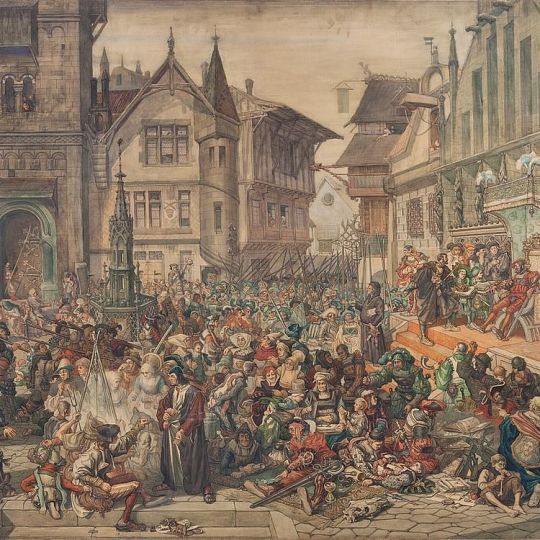
Blaurock's Origin of the Anabaptists
George Blaurock (l. c. 1491-1529) was one of the three founders of the Swiss Brethren (known by their opponents as Anabaptists) along with Conrad Grebel (l. c. 1498-1526) and Felix Manz (l. c. 1498-1527). His Origin of the Anabaptists is an account of how the sect began as well as its persecution by the Swiss reformer Huldrych Zwingli (l. 1484-1531).
Continue reading...
24 notes
·
View notes